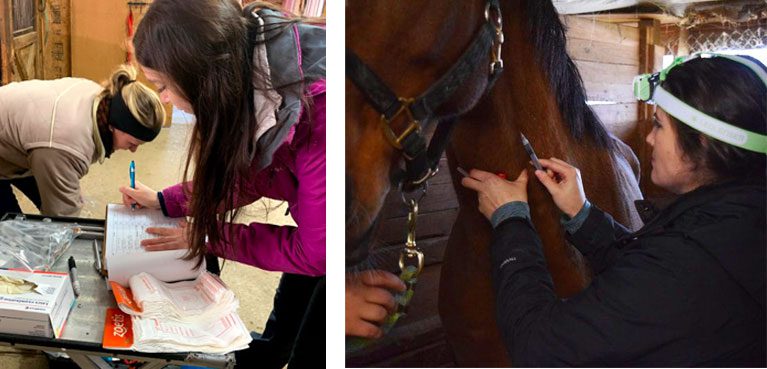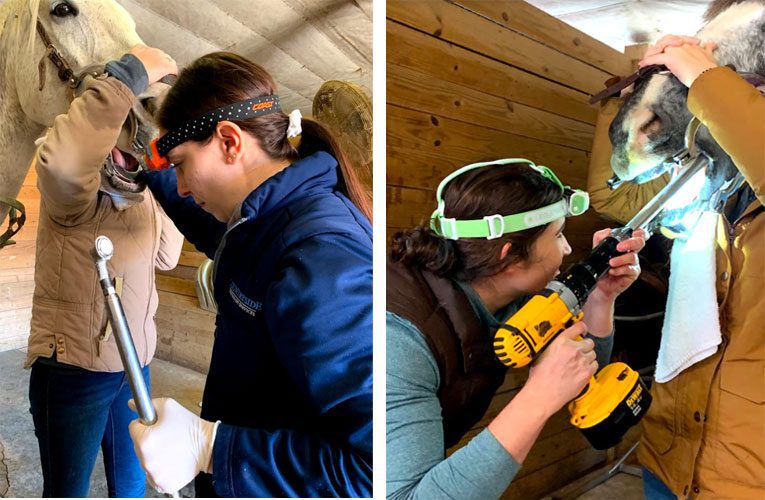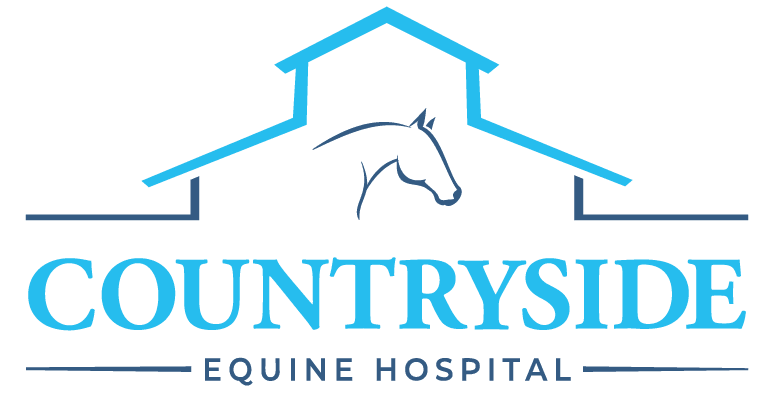Countryside Dental Month Recap

February is National Dental Month, and we as a clinic have strived to use this time for education. Along with performing dental exams, we have also released videos on dental care, documented floats we’ve performed, and ensured that our customers knew how important it was that their horses receive yearly dental checkups. To close out the month, our equine doctors have shared some of the interesting cases they’ve seen and tips on how to take charge of your horse’s dental health.
What Is A Float?
According to Dr. Samantha Eder, a float is the filing down of sharp points on a horse’s teeth. This prevents ulcerations of the mucus membrane, and it can also correct any hook teeth or ramps, which affect your horse’s ability to chew and may cause them extreme pain.
Floats are performed as a part of your horse’s yearly oral exam, so not only are these sharp points being corrected, but other detrimental problems are also being identified and diagnosed, such as wave mouth or Equine Odontoclastic Tooth Resorption and Hypercementosis (EOTRH).
Early diagnosis of these conditions leads to early veterinary treatment and intervention, which means your horse will spend less time in pain, and teeth that may otherwise have needed extraction could potentially be saved.
Cases Of Interest
While a float is normally quick and easy, we have encountered some cases this month that required a little extra care.
One of our first interesting cases of the month was scheduled as a routine float. However, upon examination of the horse’s mouth, we discovered two loose teeth, one of which was packing feed and causing the horse extreme pain. Fortunately, we were able to remove these teeth in the field without leaving a trace of root behind. After confirming this with radiographs, our patient was good to go, and I’m sure he felt a whole lot better!
We also treated a patient with a case of wave mouth, which is where a horse’s molars wear in an irregular, up and down pattern. Dr. Zoe Latimer worked with this patient, and she stated that while wave mouth cannot be completely cured, it can be managed over the course of several treatments. The goal of these treatments is to prevent the horse’s condition from worsening and to correct it as much as possible, which was the intention of Dr. Zoe’s float as well.
Finally, we saw a horse who had two wolf teeth. While the name is scary, the condition itself is relatively benign. A wolf tooth is a small extra tooth that grows close to the horse’s upper cheek. It does not typically cause the horse much pain or discomfort, but most owners choose to have their horse’s wolf teeth removed since they are not necessary and can interfere with the placement of the bit.

Take Charge Of Your Horse’s Dental Health
Good dental health is so important, as the issues that originate in your horse’s mouth can affect the entire body. A horse’s ability to chew ensures that they obtain all necessary nutrients from the foods they eat, so dental problems can not only cause pain in the mouth, but they can also cause a horse’s coat to dull, their performance to decline, and their overall quality of life to diminish. If you notice any signs of dental discomfort, such as dropping food, dropping weight, refusal to eat, shaking of the head, or fussiness at the bit, don’t hesitate to give us a call.
Recent Posts
About Us
For over 30 years, Countryside Equine Hospital has been a trusted partner for horse owners across Covington, GA. Founded by Dr. Carter, our practice began as a small operation in a garage and has grown into a state-of-the-art equine and small animal veterinary facility. Today, we combine our legacy of Southern hospitality with advanced equine medicine, offering services tailored to meet the unique needs of every horse, from top-performing athletes to beloved pasture companions.
